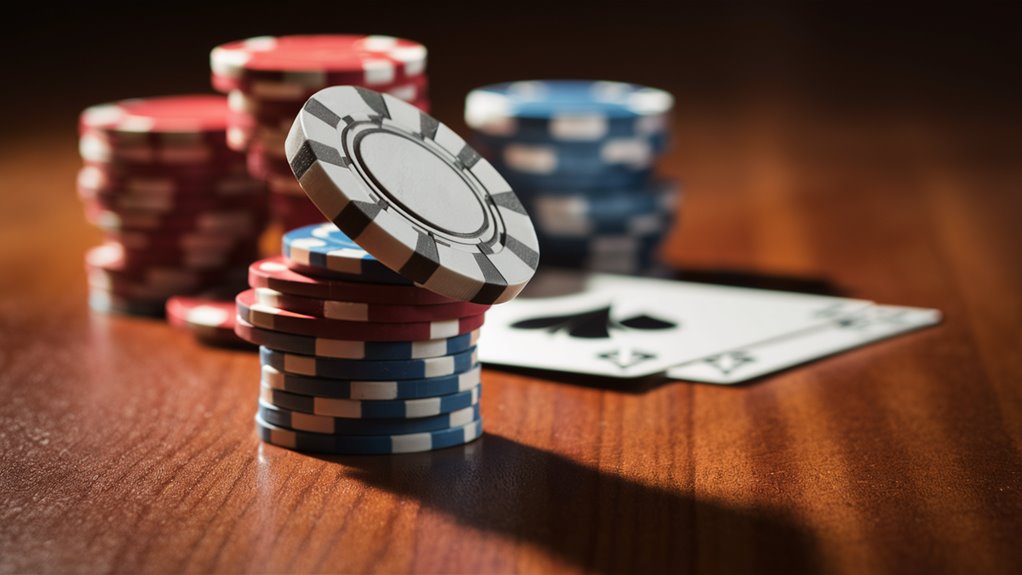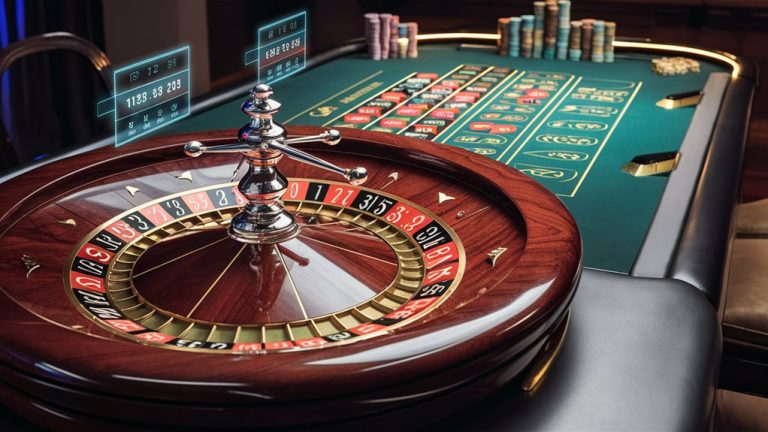
The Truth About Luck in Poker: A Data-Driven Look

Understanding Luck vs. Skill in Poker
While luck greatly affects single hands in poker, data shows it’s not the key thing that leads to long win streaks. Studies show that short-term luck is behind 80% of what happens, but skill leads in 85% of what comes out when checking over 100,000+ hands. Flicker & Fang Blackjack
Handling Luck With Good Plans
Good money plans help you stay safe from luck’s bad turns. Keeping 20-30 buy-ins as a base is key to cover bad swings. The real edge comes with getting good at:
- Odd math
- Smart playing spots
- Knowing how others play
- Keeping cool
Math Rules for Winning in the Long Run
Top players know that math odds lead poker wins more than chance does. To turn luck into sure odds, you need:
- Looking at data
- Seeing patterns
- Judging risks
- Making smart choices
True players who learn these key math ideas get a new view on luck in poker, leading to more wins and less swings in their games.
The Math Behind Poker Luck: Looking at Stats and Odds
Getting Short-Term Luck vs. Long Runs
Quick poker rounds show big swings, with luck making up to 80% of what happens in a hand. This fact comes from how cards get dealt and the random nature of it. Top players know that just one game can’t really show skill since luck changes a lot.
Stats Show More in Big Picture
Over long times, skill shows more in poker success. Looking at 100,000+ hands shows skill sets about 85% of results, with luck only at 15%. This fits with the law of big numbers, which shows how real results slowly match up with expected math.
Checking Swings With Standard Math
Variance in Tournaments
Tournament play has high swing levels, with variance hitting 100 buy-ins or more. This fact means pros need a big money plan to stay playing in these events.
Stats In Cash Games
Cash games have lower swings, with variance at about 50 buy-ins on average. This makes them more sure for working out long-term wins.
Using EV to Max Out Wins
Pros max their edge by using tough value math in every play step.
Quick vs. Long Hold Wins in Poker: Seeing How It Works
The Hit of Swings on Quick Scores
Poker win checks change a lot between short and long looks. In one game or a few events, luck and swings can hide skill big time, showing results that don’t fit the player’s true level. Even top players often lose to less good ones because of quick swings.
Playing Stats Over Time
Trust in stats shows up over long times – often months or years of real play. Here, the law of big numbers shows how luck shakes off a lot across more hands. A player with a 2% edge per hand might see big ups and downs in 100 hands, but will show real profit over 100,000 hands. Ashwoven Poker
Seeing Success In Plans
Tracking well should look at long runs over quick results. Making plans from a few plays often ends up not working too well. Good watching methods focus on loads of hands where true win rates show up clear through the stats shake out. A winning poker plan treats seeing play through data, not just quick game checks.
Building Skills Over Luck in Poker

Getting Core Math Edges
Getting really good at poker starts with building key skills that give a certifiable edge over random swings. Working out pot odds, smart spot play, and bet pattern checks set the math base for long-term money making. By always going with good value plays, top players build up edges that grow over time.
Big Ideas and Smart Plans
A solid theory core is critical for top-level poker play. Optimal game ideas give a system for choices that go beyond luck-based results. Knowing about play rates, range making, and smart changes lets players max out value in all spots, cutting reliance on top start hands.
Staying Strong and Good Money Plans
Strong mind and strict money rules are key for keeping up poker wins. Staying level in hard times and having tight money rules stops losses from bad moves. Focusing on process over results lets for clear checks of play moves. Through planned skill growth and tough hand checks, players turn poker from a luck game into a skill-heavy game with sure long-term results.
Money Plans: Staying Safe from Poker Swings
Key Money Needs
Smart money care is key to stay safe from poker’s natural swings and sure bad times. Players should keep money bases of:
- 20-30 buy-ins for cash games at the current level
- 50-100 buy-ins for event play
These big pads let players cover the stat shakes without risking all their cash during cold runs.
Handling Downs and Swings
Stat swings can hit even the best players, leading to loss runs over thousands of hands. Sticking to hard money rules stops bad moves in down times. Key steps include:
- Stop after losing three buy-ins in one go
- Drop levels when money drops 25%
- Keep strict during long cold runs
Risk Checks and Money Best Use
Risk checks give key looks at how safe your money is:
- 20 buy-ins: about 5% risk for top players 토토검증업체
- 50 buy-ins: less than 1% risk
- Watch hourly win and typical swings to see the best money amount
Players with bigger edges can use smaller money amounts and stay safe, though careful handling is a must for long success.
Seeing Players Not Cards: Top Poker Plan Book
The Pull of Seeing Players in Poker
Checking opponents more than just looking at your cards is key for deep poker plans. While good money handling keeps your chips safe, true poker skills show in knowing how others bet, time their moves, and act. This full way opens up smart play chances beyond just dealing with cards.
Using How Others Play
Getting how players act lets you make math-top moves no matter the cards. When you see a player bluffing 70% on the river, you can call well with not great cards. Big things to watch are:
- How they change bet sizes
- How often they follow up bets
- How they play from different spots
Setting Player Types and Smart Changes
Setting player types through known styles (tight-aggressive, loose-passive) sets up for expecting moves and cards. Watching how they deal with different board looks and bet sizes builds a list for smart moves. This turns poker from a chance game to a smart battle of info and smart use.
Top Pattern Checks
Building top hand checks needs watching carefully:
- Betting changes over rounds
- Timing moves in different places
- Body moves and bet flows
- How they deal with push and tough spots
By always checking how others play, players can pick the best moves that do much better than just card-based play. This focus on players marks the move from basic poker to deep smart war.
Winning the Mind Game in Bad Poker Times
Main Mind Tests
Three big mind tests hit a poker player’s mind strength in bad times: keeping emotions in check, worry over money, and getting stuck in choices. Getting through these mind blocks needs plans based on odds thinking more than result looks.
Cool Heads With Math
Staying cool when losing a lot asks for a shift to winning value (EV) thinking. Pro players look at the math rightness of each move more than quick results. Watching choices becomes a must, with a clear line between swings-based losses and bad moves.
Smart Money Handling
Good money handling is the base for keeping cool in bad times. Putting in strict rules that limit how much you play to 2% of total cash makes a safe space against swings. This math way to handling risks stops bad moves in hard times.
Getting Past Choice Freezes
Getting stuck often comes from putting too much weight on recent bad scores. The fix is keeping a broad stat view by looking at how you do over thousands of hands. In hard runs, top players stick to the core plan and the steady math rules that lead long poker wins.
Main Ways Back
- Focus on value math
- Put in strict money rules
- Keep close watch on play
- See stats over long times
- Trust tested math rules


